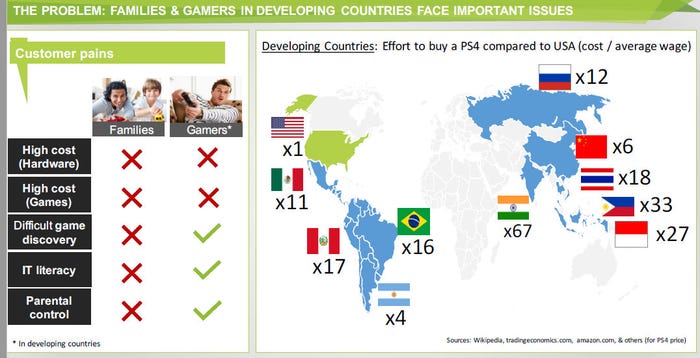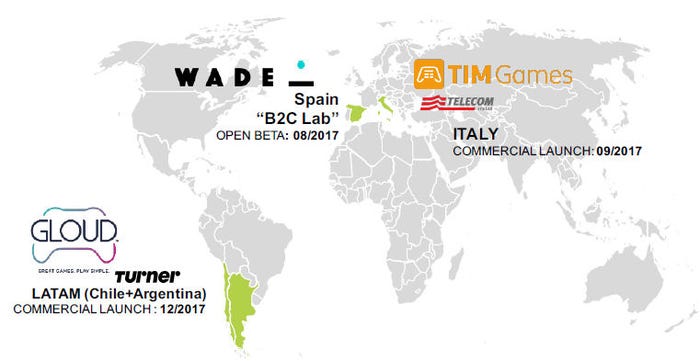PlayGiga aims to bring gaming-as-a-service to the telco channel
Operators have been obsessed with content for a while but that seldom means games. Spanish startup PlayGiga wants to change that.
March 15, 2018

Operators have been obsessed with content for a while but that seldom means games. Spanish startup PlayGiga wants to change that.
The core premise is to offer a cloud gaming platform as a white-label solution to operators, for them to re-badge and then serve up as an additional, novel, product to their subscribers. The service is intended to be consumed in a similar way to Netflix: pay a subscription fee and get limitless access to a curated catalogue of games.
The business premise behind this is to offer operators a distinct new product that specifically targets markets below the affluent, hardcore gamer; namely families and developing markets. All the graphics processing is done in the cloud, so even relatively resource-intensive games can be played though a TV and there is minimal setup and load time.
To find out a bit more about PlayGiga and the thinking behind it we spoke to its CEO Javier Polo. He explained that the company was founded in 2013 with the backing of four VCs. The platform was in pure development for three years and Polo was brought in to oversee the go-to-market phase.
Polo’s background is in strategic planning and he spent nine years as Marketing and Commercialization at Orange Spain, so he seems like a pretty good hire for a startup looking to sell into the telco channel. The strategy is B2B2C – white-label to operators – which is presumably why he’s speaking to us rather than a gaming or entertainment title.
Before you can pick a market you need to have identified that market in the first place, and Polo explained that they saw an opportunity with non-hardcore gamers. Anyone that is prepared to drop £400 or so on a PS4 is already amply catered for but there are plenty of people who have other priorities for their cash.
In western markets PlayGiga has identified ‘families’ as an untapped gaming market. We interpret that as harassed parents being badgered by their kids to buy a gaming console and their attendant pricey games and subscriptions, but who are disinclined to blow the considerable cash involved. Gaming-as-a-service promises the majority of the experience at a fraction of the (up-front) cost.
Elsewhere, as you can see from the slide below, there’s the simple fact that in much of the world the latest consoles are simply beyond the reach of most punters. The rationale is similar to the western strategy, except in this case we’re talking about the inability, rather than unwillingness, to pay for the full console gaming experience.

Since Polo came on board in 2016 things seem to be ramping nicely. Last year it scored significant deal wins with TIM in Europe and Turner in Latin America. The latter is intriguing as it goes beyond the telco channel and reminds us that the on-demand entertainment market is a battleground contested by many different, previously distinct industries.

To conclude his pitch to operators Polo stressed that he thinks gaming-as-a-service not only augments the communications service bundle to help with stickiness, but can encourage migration to more comprehensive bundles and even help with customer acquisition. Polo doesn’t reckon anyone PlayGiga has any direct competitors today and we wouldn’t be surprised to hear of more operator deal wins from them before long.
About the Author
You May Also Like




.png?width=300&auto=webp&quality=80&disable=upscale)
.png?width=300&auto=webp&quality=80&disable=upscale)




.png?width=300&auto=webp&quality=80&disable=upscale)


_1.jpg?width=300&auto=webp&quality=80&disable=upscale)